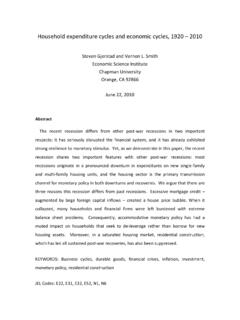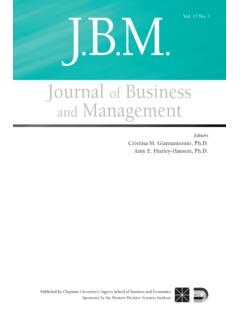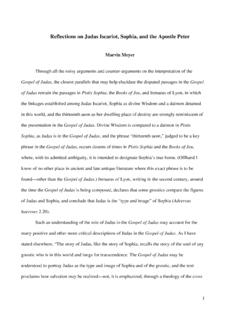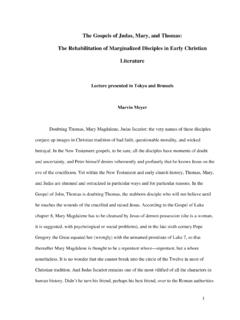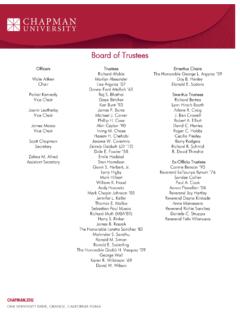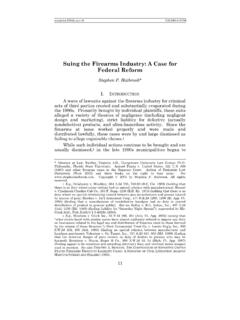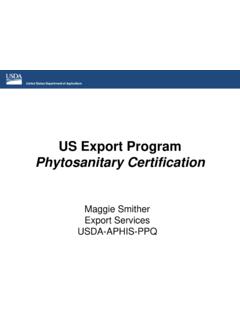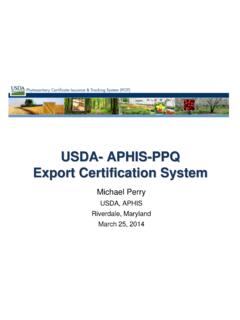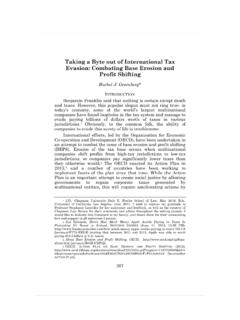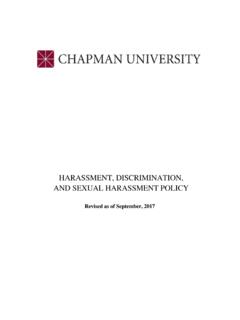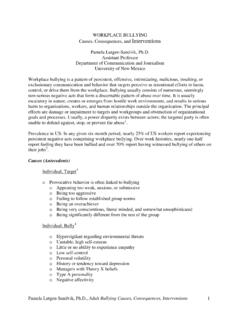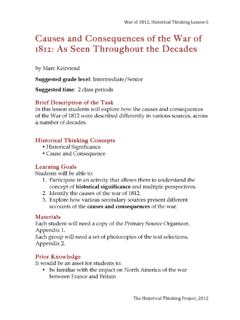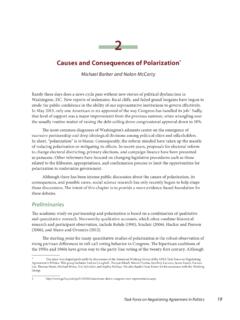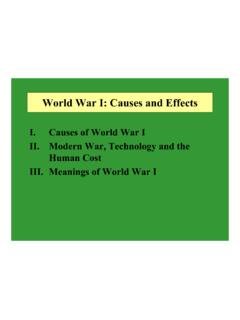Transcription of Causes and Consequences of the Protestant …
1 Causes and Consequences of the Protestant Reformation* Sascha O. Becker Steven Pfaff University of Warwick University of Washington Jared Rubin Chapman University The Protestant Reformation is one of the defining events of the last millennium. Nearly 500 years after the Reformation, its Causes and Consequences have seen a renewed interest in the social sciences. Research in economics, sociology, and political science increasingly uses detailed individual-level, city-level, and regional-level data to identify drivers of the adoption of the Reformation, its diffusion pattern, and its socioeconomic Consequences . We take stock of this research, pointing out what we know and what we do not know and suggesting the most promising areas for future research.
2 Keywords: Protestant Reformation JEL classification: N33, Z12, R38, D85 July 2016 * Detailed comments from Kris Mitchener, Davide Cantoni, Rachel M. McCleary, Katie Corcoran, Sriya Iyer and a referee are gratefully acknowledged. Department of Economics, University of Warwick, Coventry CV4 7AL, United Kingdom; Becker is also affiliated with Ifo, CESifo, CEPR, IZA and ROA. Department of Sociology, University of Washington; Argyros School of Business & Economics, Chapman University; 2 Though Protestantism had begun as a strictly religious reform movement, the people behind the new economic forces seized the Reformation and bent it to their own economic needs.
3 [..] As the modes of production changed, the people responsible for these changes searched for a state that would legalize what they were doing and for a religion that would sanctify it. They adopted the Protestant religion and made it embrace the capitalist state. The two went hand in hand like bride and groom. (Max I. Dimont, Jews, God and History, 1962) I. Introduction The Protestant Reformation was one of the most far-reaching events of the last millennium. It ended the ancient hegemony of the Catholic Church in Western Europe and altered political and economic fortunes. Beyond its upcoming 500-year anniversary (with 2017 officially being designated the "Lutherjahr" in Germany), it continues to fascinate social scientists for several reasons.
4 First, the economic Consequences of the Reformation are of wide-ranging importance for debates concerning the emergence of economic growth in Western Europe as well as for our understanding of comparative economic development. Second, the role of economic development and innovations in communications technology and media in instigating change in the Reformation has broader comparative implications. Third, the case of the Reformation is an important example of institutional change, the origins and effects of which are areas of importance in economics as well as political science and sociology. Our survey persuades us that the recent research we highlight has advanced our understanding of the Causes and Consequences of the Reformation.
5 For one, there is far greater attention to causal assessment than was the case in the past. We attribute much of this to the use of econometric methods and its emphasis on causal identification, a marked improvement over descriptive approaches and inference based on correlations. However, many of the studies of the long-term Consequences of the Reformation outside of economics use comparative case-based methods. Although these often allow for narrative techniques of causal discernment, their external validity is more suspect. In addition, while sociological studies would generally benefit from the adoption of econometric methods, economic studies might benefit from greater contextualization and attention to qualitative evidence, particularly in the selection and justification of instrumental 3 variables.
6 Mixed-method designs are making important strides in improving the validity of comparative and historical social science and may help improve the state of the art in research on the Reformation. We find that the emerging literature on the Reformation by economic historians and other social scientists has already made important contributions that have both confirmed previous hypotheses and suggested new understandings of the Reformation. In moving beyond the limited case studies of particular imperial cities, regions, or principalities that have been the usual domain of historians and by disaggregating countries into smaller units such as towns and counties, researchers have systematically tested both existing explanations and novel hypotheses.
7 They have increasingly employed advanced econometric techniques such as instrumental variables (two or three stage least squares) to pin down causal effects. Instrumental variables analyses represent a significant advance over previous econometric techniques because they permit the researcher to overcome issues of reverse causality and omitted variable bias that are inherent in historical data. Using these techniques, researchers have found support for some of the prominent arguments in the historical literature, such as the importance of the political and economic incentives in decisions to institute reform or the effects of printing as a new information technology on demand for Protestantism.
8 But researchers have also found support for newer explanations, emphasizing social diffusion through proximity or through social ties as important features of the success of Protestant movements. Numerous studies have demonstrated the lasting Consequences of the Reformation not only for economic growth but also for institutional development and long-term patterns of intolerance and social conflict. This survey summarizes the social science research on the religious economy of Western Europe at the time of Luther and the Causes and Consequences of the Reformation. We divide the literature focusing on the Causes of the Reformation into supply-side and demand-side factors, although numerous studies emphasize both.
9 To be clear, by the supply-side of the Reformation, we mean either institutional or technological features that permitted the Reformation to spread more rapidly or limited the ability of the Church and its political allies to stop its spread. By demand-side , we mean those features that affected the desire for the reform of the Church among the population and political elite. The literature on the Consequences of the Reformation shows a variety of short- and long-run effects, including Protestant -Catholic differences in human capital, economic 4 development, competition in media markets, political economy, and anti-Semitism, among others.
10 For historical and pragmatic reasons, these studies tend to go beyond the boundaries of Central Europe more than studies of the Causes of the Reformation. It is just as important to note what this analytic survey does not intend to accomplish. First, it is not a historiographical essay and thus does not review the very broad and accomplished historical literature on the Reformation that is primarily narrative in method and principally concerned with description. Whereas a number of useful essays on the historiography of the Reformation already exist ( , Brady 1998a; Karant-Nunn 2005; Rittgers 2011) and many more will doubtlessly appear in connection with the upcoming anniversary of 1517, a review of the social scientific literature on the Reformation has not yet Second, it is concerned with works on the Reformation that have been produced by scholars working within the disciplinary boundaries of economics, political science, and sociology that are intended to yield general explanation.
